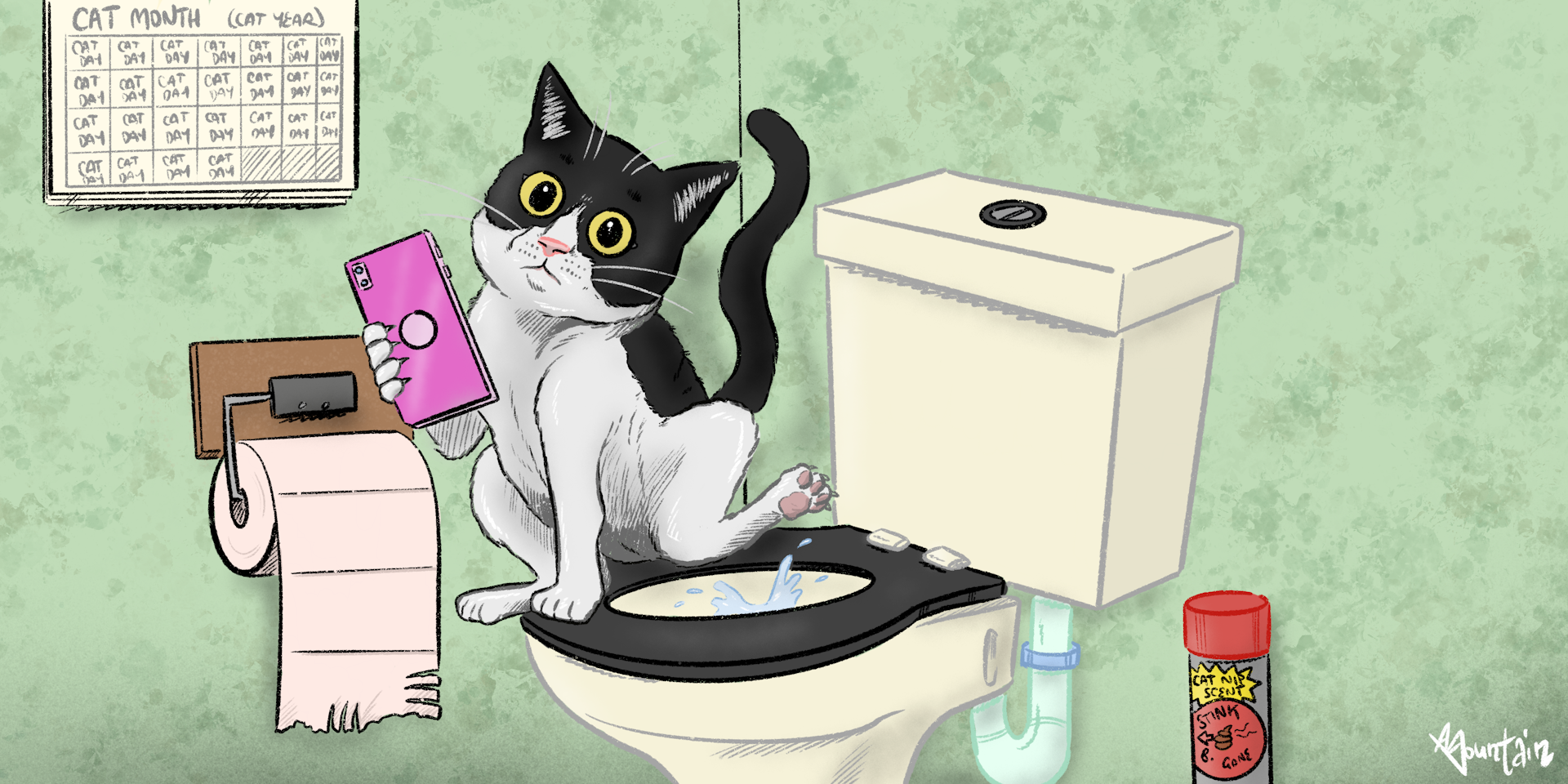Avoid Clogs and Damage: Never Flush Cat Poop Down Your Toilet - Expert Recommendations
Avoid Clogs and Damage: Never Flush Cat Poop Down Your Toilet - Expert Recommendations
Blog Article
Everyone has their private rationale when it comes to Can You Flush Cat Poop Down The Toilet?.

Intro
As feline proprietors, it's important to be mindful of just how we take care of our feline good friends' waste. While it may seem practical to purge cat poop down the bathroom, this technique can have harmful effects for both the environment and human health and wellness.
Alternatives to Flushing
Luckily, there are more secure and much more accountable methods to deal with feline poop. Think about the adhering to choices:
1. Scoop and Dispose in Trash
The most common technique of throwing away feline poop is to scoop it right into an eco-friendly bag and toss it in the trash. Make sure to utilize a dedicated litter scoop and throw away the waste promptly.
2. Usage Biodegradable Litter
Opt for biodegradable cat litter made from materials such as corn or wheat. These clutters are eco-friendly and can be securely disposed of in the trash.
3. Bury in the Yard
If you have a yard, consider hiding pet cat waste in a marked area away from veggie yards and water resources. Be sure to dig deep adequate to prevent contamination of groundwater.
4. Mount a Pet Waste Disposal System
Purchase an animal waste disposal system specifically designed for pet cat waste. These systems utilize enzymes to break down the waste, minimizing odor and ecological effect.
Health Risks
In addition to ecological concerns, purging cat waste can likewise pose health threats to people. Pet cat feces might consist of Toxoplasma gondii, a parasite that can create toxoplasmosis-- a potentially severe health problem, particularly for expecting females and individuals with damaged body immune systems.
Environmental Impact
Purging pet cat poop introduces unsafe pathogens and parasites into the water supply, posturing a significant danger to water communities. These pollutants can adversely affect aquatic life and concession water quality.
Final thought
Liable pet dog ownership prolongs past giving food and sanctuary-- it also includes appropriate waste monitoring. By avoiding purging pet cat poop down the toilet and choosing alternate disposal approaches, we can minimize our ecological impact and protect human health and wellness.
Why Can’t I Flush Cat Poop?
It Spreads a Parasite
Cats are frequently infected with a parasite called toxoplasma gondii. The parasite causes an infection called toxoplasmosis. It is usually harmless to cats. The parasite only uses cat poop as a host for its eggs. Otherwise, the cat’s immune system usually keeps the infection at low enough levels to maintain its own health. But it does not stop the develop of eggs. These eggs are tiny and surprisingly tough. They may survive for a year before they begin to grow. But that’s the problem.
Our wastewater system is not designed to deal with toxoplasmosis eggs. Instead, most eggs will flush from your toilet into sewers and wastewater management plants. After the sewage is treated for many other harmful things in it, it is typically released into local rivers, lakes, or oceans. Here, the toxoplasmosis eggs can find new hosts, including starfish, crabs, otters, and many other wildlife. For many, this is a significant risk to their health. Toxoplasmosis can also end up infecting water sources that are important for agriculture, which means our deer, pigs, and sheep can get infected too.
Is There Risk to Humans?
There can be a risk to human life from flushing cat poop down the toilet. If you do so, the parasites from your cat’s poop can end up in shellfish, game animals, or livestock. If this meat is then served raw or undercooked, the people who eat it can get sick.
In fact, according to the CDC, 40 million people in the United States are infected with toxoplasma gondii. They get it from exposure to infected seafood, or from some kind of cat poop contamination, like drinking from a stream that is contaminated or touching anything that has come into contact with cat poop. That includes just cleaning a cat litter box.
Most people who get infected with these parasites will not develop any symptoms. However, for pregnant women or for those with compromised immune systems, the parasite can cause severe health problems.
How to Handle Cat Poop
The best way to handle cat poop is actually to clean the box more often. The eggs that the parasite sheds will not become active until one to five days after the cat poops. That means that if you clean daily, you’re much less likely to come into direct contact with infectious eggs.
That said, always dispose of cat poop in the garbage and not down the toilet. Wash your hands before and after you clean the litter box, and bring the bag of poop right outside to your garbage bins.
https://trenchlesssolutionsusa.com/why-cant-i-flush-cat-poop/

Do you appreciate reading about How to Dispose of Cat Poop and Litter Without Plastic Bags? Make a short review below. We would be delighted to find out your thinking about this piece. Hoping to see you back again later on. Sharing is good. One never knows, you might be doing someone a favor. I appreciate reading our article about Can You Flush Cat Poo or Litter Down the Toilet?.
Schedule Today! Report this page